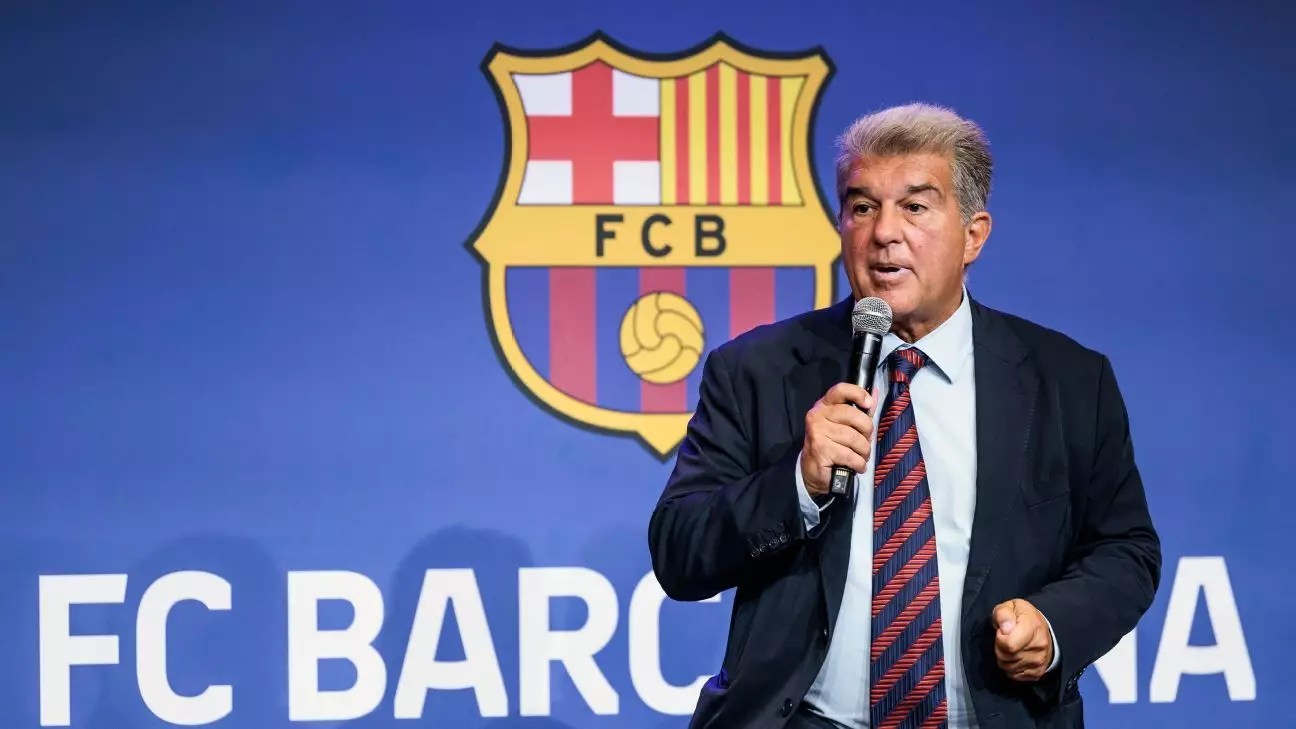In a world where financial transparency and accountability often come under scrutiny, FC Barcelona’s president, Joan Laporta, has found himself in the eye of a storm. During the club’s annual general meeting, Laporta passionately defended his management as members overwhelmingly approved the financial accounts for the 2023-24 season despite revealing a substantial net loss. With Laporta’s bold statements and strategic maneuvers, the club is navigating its way through turbulent waters. This article delves into the challenges faced, the strategic decisions made, and the outlook for Barcelona moving forward.
The club’s financial reports tell a tale that is hard to ignore. With a net loss of €91 million (approximately $98.9 million), Barcelona has presented a hard truth: the financial strain exacerbated by the pandemic and poor investments. A considerable portion of this loss relates to the investment in the “Barça Vision” subsidiary. The losses indicate that while there are signs of recovery, the road to financial stability will not come easy. The members’ vote, which saw 452 in favor and 156 against, indicates a willingness among supporters to trust their president, despite knowing that the club is not out of the woods yet.
In his defense, Laporta emphasized the need for drastic measures to restore financial health, including the sale of television rights and Club assets. This strategic shift towards monetization does, in fact, raise ethical questions regarding the long-term effects on the club’s identity and its core supporters. Selling media rights can lead to immediate cash inflows, yet overreliance on such measures risks commodifying what is supposed to be a community-centered institution.
Laporta highlighted specific performance metrics to contend with his critics vehemently. He boasted about the improved ratio of salaries to income, indicating a more sustainable fiscal model compared to two years ago. However, it is essential to scrutinize whether these changes are sustainable or merely remedial actions to appease fans and stakeholders. Policies that involve trimming wage bills often lead to discontent among talented players, which could backfire by affecting team morale and performance on the pitch.
Additionally, the reliance on homegrown talent represents a mixed bag. While investing in academy graduates fosters local talent and retains fan loyalty, it can also mean surrendering to a lack of experienced players capable of handling high-stakes situations—especially in critical matches against top-tier opposition. The success of this dependency will ultimately depend on the robustness of the academy and Laporta’s readiness to invest in strategic signings.
What cannot be overlooked is the fervor with which Laporta attacked his critics, citing “envy” as a motivator behind their remarks, particularly concerning the ongoing Negreira case. While this sentiment resonates with supporters who believe in the sanctity of the club, it also illustrates the polarization within the fan base. For every supporter who cheers on Laporta’s efforts, there exists an equally vocal faction questioning both his decisions and their long-term implications.
This friction raises an important question: can Laporta continue invoking the shared ethos of fighting against perceived enemies while simultaneously addressing critical voices within the fan community? As the club strives to conquer not just domestic but also international competitions, strife within the ranks can disrupt the unity needed for success.
FC Barcelona is at a crossroads that demands astute and decisive leadership. The current trajectory reflects incremental improvements, but can these be transformed into sustained success? The upcoming dialogues surrounding financial policies, player investments, and managerial strategies will be critical. Moreover, judging Laporta’s tenure will require a long-term view focused on both financial sustainability and competitive performance.
As Barcelona sits atop La Liga under new management, fans eagerly hope that recent decisions translate into tangible success on the pitch. As challenges persist, Laporta’s rhetoric will need to evolve from defensive posturing to a more transparent dialogue focused on collaboration and growth. Only time will tell whether Barcelona emerges stronger from these trials or succumbs to the weight of its own ambitions.


Leave a Reply